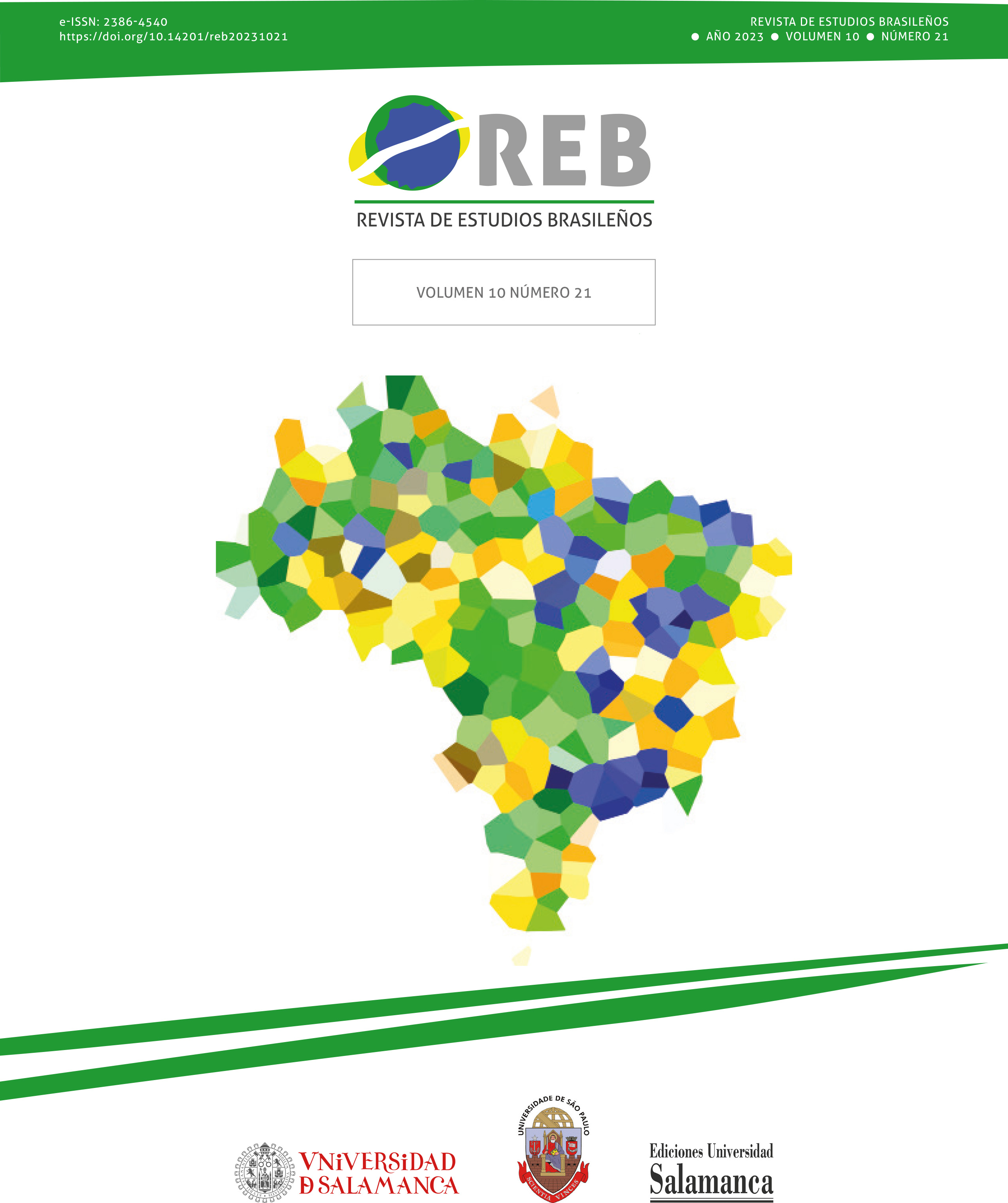Balance y proposiciones para descolonizar el conocimiento
DOI:
https://doi.org/10.14201/reb20231021233245Resumen
En su entrevista, Ivan da Costa Marques medita sobre las posibilidades que ofrecen los Estudios Sociales de Ciencias, Tecnología y Sociedad en la construcción de salidas a la subalteridad colonialista que cerca las relaciones entre Brasil y el modo de ser euroamericano. Por medio de discusiones conceptuales y ejemplos históricos, el entrevistado busca responder cómo los entendimientos locales se desvanecen en medio de los dispositivos cognitivos que producen conocimientos científicos a partir de la tradición euroamericana, buscando otros modos de «conferir legitimidad a saberes locales brasileños rechazados por las ciencias y tecnologías modernas europeas».
Descargas
Referencias
Bijker, W. E., Hughes, T. P., & Pinch, T. J. (1987). The social construction of technological systems: new directions in the Sociology and History of technology. Cambridge, Mass.: MIT Press.
Marques, I. C. (2008). Fatos e artefatos da “invencibilidade moderna”. In M. Almeida, & M. R. Vergara (Ed.). Ciência, história e historiografia (pp. 231-244). Rio de Janeiro: Museu de Astronomia e Ciências Afins.
Marques, I. C. (2016). What can STS do with and for Latin America? An anthropophagic response and some examples. In M. Kuhn, & H. Vessuri (Ed.). Contributions to Alternative Concepts of Knowledge (pp. 123-142). Stuttgart: IBIDEM.
Marques, I. C. (2022). Não é que os conhecimentos especializados não sirvam, mas que eles deixam buracos na sua visão de mundo. In A. A. L. Ferreira, & H. Cukierman. Trilogía Ciencia Tecnología Sociedad, 14(28), 1-22. https://revistas.itm.edu.co/index.php/trilogia/article/view/2609/2653:
Dantas, V. (1988). Guerrilha tecnológica: a verdadeira história da política nacional de informática. Rio de Janeiro: Livros Técnicos e Científicos.
Hoddeson, L. (1981). The emergence of basic research in the Bell tepone system, 1875-1915. Technology and Culture, 22(3), 512-545.
Husserl, E. (1954). A crise das Ciências europeias e a Femenologia Transcendental. Rio de Janeiro: Forense Universitária.
Knorr-Cetina, K. (1981). The manufacture of knowledge: an essay on the constructivist and contextual nature of science. Oxford: Pergamon Press.
Latour, B. (1987). Ciência em Ação - Como seguir cientistas e engenheiros sociedade afora. São Paulo: UNESP.
Latour, B. (1991). Jamais fomos modermos - ensaio de Antropologia simétrica. Rio de Janeiro: Editora 34.
Latour, B. & Woolgar, S. (1979). A vida de laboratório - a produção dos fatos científicos. Rio de Janeiro: Relume Dumará.
Lynch, M. (1985). Art and artifact in laboratory science: a study of shop work and shop talk in a research laboratory. Londres: Routledge & Kegan Paul.
Miyoshi, M. & Harootunian, H. D. (1989). Postmodernism and Japan. Durham: Duke University Press.
Polanyi, K. (2000). A Grande Transformação - as origens da nossa época. Rio de Janeiro: Editora Campus
Traweek, S. (1988). Beamtimes and lifetimes: the world of high energy physicists. Cambridge: Harvard University Press.
Vianna, M., Pereira, L. A., & Perold, C. (Ed.). (2022). História da Informática na América Latina - Reflexões e experiências (Argentina, Brasil e Chile). Jundiaí: Paco Editorial.
Descargas
Publicado
Número
Sección
Licencia
Derechos de autor 2023 Luiz Otávio Ferreira, Márcia Regina Barros da Silva, Paulo Elian dos Santos

Esta obra está bajo una licencia internacional Creative Commons Atribución-NoComercial-SinDerivadas 4.0.





